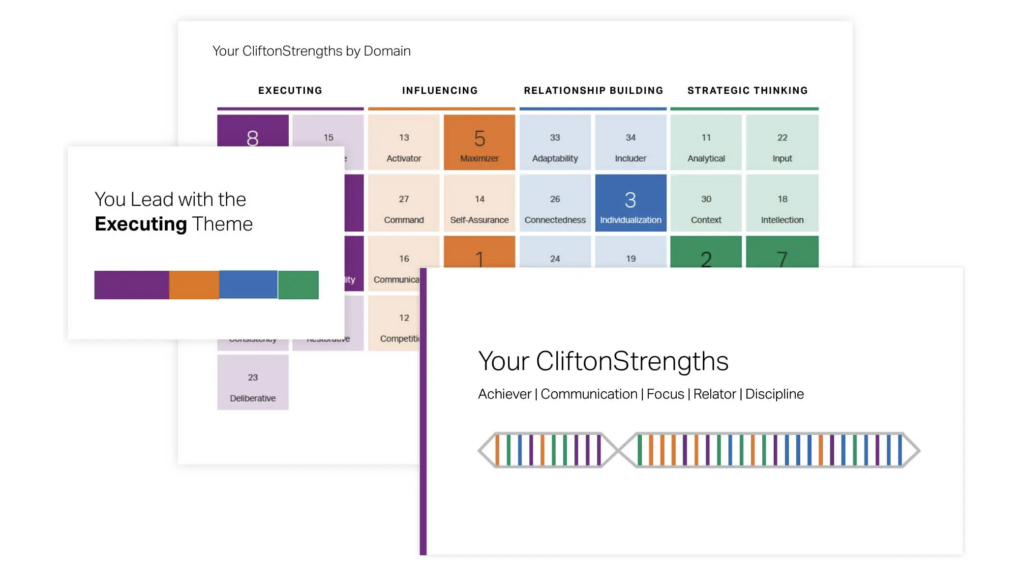
A resume is THE cornerstone branding document in which all other career documents are built upon. For clear messaging that resonates with your target audience, a well-written resume is crucial. The resume is generally the first impression decision makers have to evaluate and may determine if the job seeker ever steps foot in the door. In today’s competitive market that meanseaders have to be able to tell their career story in a way that’s easy to digest, that demonstrates a unique value add, and showcases their expertise. One effective way to do this is through skills integration in a resume.
Not a one-size-fits-all solution
When it comes to crafting a resume, understanding general insights and resume tips may not be enough. The problem is that resumes are not a one-size-fits-all solution, and the further along on the career journey, the more likely an executive resume could be better aligned with their goals and objectives. Executive resumes are utilized to illustrate effective leadership capabilities and discernable qualities of those influencing and directing strategy. This article will delineate between a regular resume and an executive resume and provide more detail on when the latter should be used. Furthermore, it’s important to know how to position both soft and hard skills in an executive resume. We will share a few examples of effective skill integration, along with common mistakes to avoid.
What is an Executive Resume?
So, what exactly is an executive resume? This type of resume is designed to establish a central theme or value proposition that highlights a professional’s career expertise. The executive resume places emphasis on strategic thinking, leadership abilities, and overall organizational impact. By presenting a compelling narrative, hiring teams can confidently assess an executive resume to determine if the candidate’s capabilities align with their short-term and long-term objectives.
To further clarify, a standard resume is typically formatted in a linear fashion and resonates well when a role is reactive, operational, or task-driven. “Joe did this action and achieved this result.” This format provides reasonable evidence for potential success by highlighting skill sets acquired through experience and education. The executive resume, on the other hand, is more forward-looking and impact-driven. An executive resume must convey an ability to proactively take the company where it needs to go next and substantial evidence of a history of doing so. To put it in perspective, it’s less about driving the car and more about navigating the road trip. An executive resume will thus need to be able to articulate the skills that allow them to achieve large scale business results.
Resume First Page
The top third of the page is valuable real estate for identifying skill alignment. A majority of a recruiter’s attention will be spent studying this section as they search for candidate alignment to hiring objectives. For this reason, executive resumes often include headlines, executive statements, and break-out boxes to emphasize a specialized suite of skills. In a highly competitive market, it is imperative that a resume quickly conveys the right value added to avoid being passed over.
When you have an established career and limited space to showcase your skills, how do you determine which ones are the most important? The skills to emphasize will largely depend on the specific position you’re targeting, the overall function, and the industry. For instance, a marketing director might want to highlight their effective campaign management skills, while an in-house legal counsel might focus on skills related to compliance. Additionally, there are certain universal skills that every effective leader should possess, and some of those are outlined below:
- Decision making
- Emotional intelligence
- Leadership
- Problem-solving
- Effective communication at all levels
- Change management
- Strategic thinking and execution
- Technical understanding
- Relationship building
- Integrity
- Adaptability
- Empathy and self-awareness
Soft Skills vs Hard Skills on a Resume
When it comes to incorporating skills into an executive resume, one should consider a balance between soft skills and hard skills. Soft skills speak to critical interpersonal aptitudes and are often difficult to define or measure. These are necessary to effectively influence, solve problems, and adapt to massive organizational changes. On the other hand, one must also possess a skill set that demonstrates a proficiency of technical knowledge, advanced education, and the ability to perform at the highest levels. Regardless of soft or challenging skills, the executive resume must be able to answer the question of how and define the degree of impact that resulted.
A common mistake applicants make is a failure to connect key skills to compelling outcomes. Even when done correctly, the language can be repetitive, dull, and monotone. To stand out, consider using action verbs that are engaging. For example, one might substitute the following “Led an effort… ” for a term like “Spearheaded…” The following examples demonstrate what a practical skills section could look like in various roles, and the type of supporting documentation one would expect to see on an executive resume.
- LEADERSHIP: Proven history of building high-performing and engaged teams. Maintained exceptional employee retention rates and achieved a 95 leader index.
- BENEFITS & HRIS: Oversaw benefits program redesign that increased participation in wellness program offerings by 50%+. Introduced a new HRIS system and transitioned to paperless processes in alignment with company goals.
- MERGERS & ACQUISITIONS: Successful completion of company (X)’s first M&A process to successfully achieve the 100-day integration goal. Completed 6 deals to date.
Less is More
As job seekers at every level begin identifying key skills, they often make the mistake of thinking more is better. This trend is a consequence of the increasing use of “keyword matching” in the screening process. It has left many job seekers with the impression that increasing the number of skills in their resume will make them stand out. The truth is that doing so only dilutes the impactfulness that skills aim to emphasize. When it comes to your resume, it’s important not to overload it with an excessive number of skills. This can overwhelm the reader and make it difficult for them to grasp your unique value proposition, which should be the main focus.
Consider Your Target Audience
Another common mistake is neglecting to tailor your skill sets to the specific position you’re applying for. It’s highly recommended to conduct key skill evaluation exercises to ensure that your resume aligns with the target job opportunity. This can be done by carefully reviewing the ideal job description and identifying what the employer is seeking. While modern AI tools can assist in extracting key words, simply using a highlighter on paper can achieve the same result. Conducting a skills comparison analysis will help identify a cohesive theme that revolves around the most critical hard and soft skills required to meet the company’s objectives. Use the job description as a guide to match your relevant skills with the specific terminology used by the organization. Other effective methods of identifying skills include StrengthsFinder assessments and reviewing past performance evaluations.

As an executive-level professional, it is crucial to ensure that your resume stands out from the competition. There is no second-place trophy for a resume that barely makes the cut. By developing a strategy that focuses on selecting strong skills that are relevant to the role and backed by results, your executive resume will tell a success story that resonates with your target audience. We encourage you to take this opportunity to review your resume with fresh eyes, ensuring that the format, language, and results related to your unique skills align with your target position. This will give you an advantage in the job search process. If you need assistance in an executive resume, we would be delighted to work with you.
